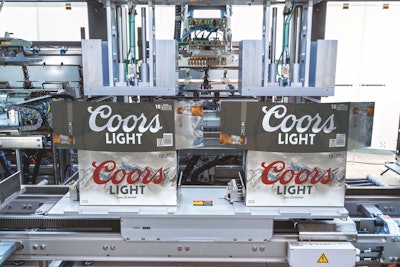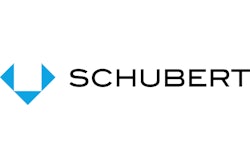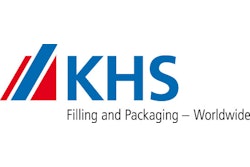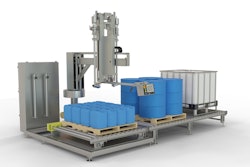Upon opening a new production plant in British Columbia, Canada, Molson Coors needed an intelligent end-of-line automation solution to package filled glass bottles in a wide variety of paperboard and corrugated case formats and layouts. The challenge was to integrate three individual processes—carton and case erecting, bottle loading, and case sealing—into one seamless system with a consistently high output. “It was very important for us to find a solution that could ensure the flexibility needed to quickly respond to changing market needs and preferences,” says Connie Jones, Senior Project Manager, Molson Coors.
The solution was the Innopack TLM, a state-of-the-art bottle packaging system developed jointly by KHS and Schubert. The high-performance, space-saving system merges the KHS bottle packer with Schubert’s TLM packaging system. The resulting Innopack TLM offers a single, smooth process with minimum changeover and start-up time.
“Traditionally, production lines for processing baskets, RSC boxes and wrap-around cartons are linked by conveyors. The Innopack TLM, however, integrates the individual modules with a significantly higher degree of flexibility,” says Max Schwaiger, Product Support, KHS.
The new packaging line for Molson Coors now packs six different formats: 6-packs in trays, 12-, 15- and 18-packs in cartons, 6-pack baskets in RSC boxes, baskets or wrap-arounds, as well as 24-pack RSC cases, all at speeds of up to 720 bottles/min. The Innopack TLM provides the brewer with the necessary flexibility in terms of formats and packaging schemes, and kept up with the prodigious throughput. Currently, 341 mL and 355 mL bottle sizes are packed and further sizes are possible.
Seamless connection with the Transmodul
The system combines three key functionalities: erecting the various packaging formats, loading the bottles in the erected cases, and closing the cases. The erecting and closing steps are handled by a Schubert TLM packaging system, while bottle loading is carried out by the KHS.
The seamless connection of the two systems is enabled by Schubert’s Transmodul transport robot that conveys the bottles and cartons. The machine consists of two Transmodul tracks with several Transmodul shuttles per track. Every Transmodul shuttle has a format-specific, easily exchangeable format plate, providing endless possibilities and flexibility. The block formation with KHS and Schubert components makes long-transfer systems and separate infeed and outfeed sections entirely redundant, reducing wear and tear, maintenance, and energy consumption. Moreover, this compact installation only requires one operator.
The Schubert erecting section comprises six F2 robots. Two F2 robots are used for RSC cases and four for baskets or wrap-arounds. Two F3 robots are used for denesting the wrap-around carton-blanks or baskets. After this initial process, the robots place the cases on the Transmodul shuttles. Four of these shuttles (two per track) move into the KHS section of the line, where the bottles are loaded into the cases. The KHS tools can be changed easily and quickly to accommodate different formats.
The process differs slightly for backset packaging. The baskets are erected and then placed into a RSC-case, the RSC-case is then filled with bottles by the KHS module.
In the next step, the Transmodul shuttles move on to the closing section which consists of two F2 closing robots. The closed RSC boxes are then discharged. The wrap-around cartons are either discharged directly, or transferred into trays by two F2 robots and then discharged. Upstream, the trays are erected by two F2 robots. One tray contains of either two or four wrap-around cartons with a total of 24 bottles/tray.
Formats and speed, Molson Coors, British Columbia
Six different formats are packaged:
- 6-pack in tray – 600 bottles per minute = 100 cartons per minute = 25 trays per minute
- 12-pack – 720 bottles per minute = 60 cartons per minute
- 15-pack – 720 bottles per minute = 48 cartons per minute
- 18-pack – 720 bottles per minute = 40 cartons per minute
- 6-pack basket in RSC boxes – 720 bottles per minute = 120 baskets per minute = 30 RSC boxes per minute
- 24-pack RSC case – 720 bottles per minute = 30 RSC boxes per minute
Bottle sizes: 341 ml and 355 ml
Efficiency: ≥ 96 %

































